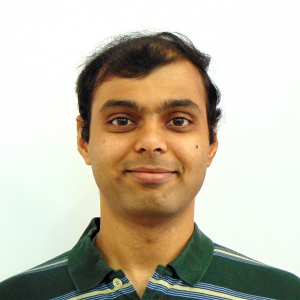-
ECE Seminar: Compiler and Runtime Systems for Homomorphic Encryption and Graph Analytics

Wed, Mar 11, 2020 @ 10:45 AM - 11:45 AM
Ming Hsieh Department of Electrical and Computer Engineering
Conferences, Lectures, & Seminars
Speaker: Roshan Dathathri, PhD candidate, Dept of CS, University of Texas at Austin
Talk Title: Compiler and Runtime Systems for Homomorphic Encryption and Graph Analytics
Abstract: Distributed and heterogeneous architectures are tedious to program because devices such as CPUs, GPUs, FPGAs, and TPUs provide different programming abstractions and may have disjoint memories, even if they are on the same machine. In this talk, I present compiler and runtime systems that make it easier to develop efficient programs for privacy-preserving computation and graph analytics applications on such architectures.
Fully Homomorphic Encryption (FHE) refers to a set of encryption schemes that allow computations on encrypted data without requiring a secret key. Recent cryptographic advances have pushed FHE into the realm of practical applications. However, programming these applications remains a huge challenge, as it requires cryptographic domain expertise to ensure correctness, security, and performance. I present CHET, a domain-specific optimizing compiler, that is designed to make the task of programming neural network inference applications using FHE easier. CHET automates many laborious and error prone programming tasks including encryption parameter selection to guarantee security and accuracy of the computation, determining efficient data layouts, and performing scheme-specific optimizations. Our evaluation of CHET on a collection of popular neural networks shows that CHET-generated programs outperform expert-tuned ones by an order of magnitude.
Applications in several areas like machine learning, bioinformatics, and security need to process and analyze very large graphs. Distributed clusters are essential in processing such graphs in reasonable time. I present a novel approach to building distributed graph analytics systems that exploits heterogeneity in processor types, partitioning policies, and programming models. The key to this approach is Gluon, a domain-specific communication-optimizing substrate. Programmers write applications in a shared-memory programming system of their choice and interface these applications with Gluon using a lightweight API. Gluon enables these programs to run on heterogeneous clusters and optimizes communication in a novel way by exploiting structural and temporal invariants of graph partitioning policies. Systems built using Gluon outperform previous state-of-the-art systems and scale well up to 256 CPUs and 64 GPUs.
Biography: Roshan is a Ph.D. candidate advised by Prof. Keshav Pingali in the University of Texas at Austin. He works on domain-specific programming languages, compilers, and runtime systems that make it easy to develop efficient sparse computation and privacy-preserving computation on large-scale distributed clusters, while utilizing heterogeneous architectures. He has built programming systems for distributed and heterogeneous graph analytics and privacy-preserving neural network inferencing. He received his masters from Indian Institute of Science advised by Prof. Uday Bondhugula, where he worked on automatic parallelization of affine loop nests for distributed and heterogeneous architectures.
Host: Professor Massoud Pedram
Location: Hughes Aircraft Electrical Engineering Center (EEB) - 248
Audiences: Everyone Is Invited
Contact: Mayumi Thrasher
This event is open to all eligible individuals. USC Viterbi operates all of its activities consistent with the University's Notice of Non-Discrimination. Eligibility is not determined based on race, sex, ethnicity, sexual orientation, or any other prohibited factor.




